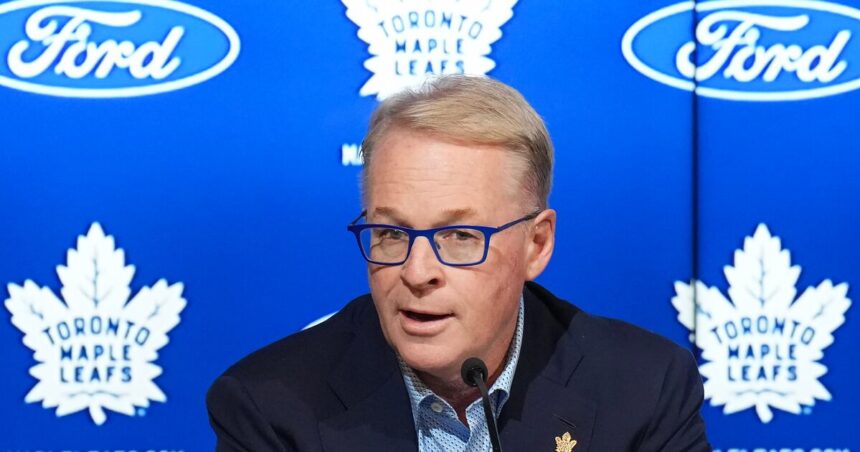In the wake of Brendan Shanahan’s unexpected departure as Toronto Maple Leafs president, Maple Leaf Sports & Entertainment (MLSE) leadership is preparing to address the media today. The announcement sent shockwaves through Toronto’s hockey community yesterday, ending Shanahan’s decade-long tenure with the organization.
As I made my way through the Financial District this morning, conversations about the leadership shakeup dominated coffee line chatter. Toronto’s relationship with its beloved hockey team runs deep, and major front office changes always trigger intense public scrutiny.
“This feels different than previous management changes,” said Marcus Delray, a longtime season ticket holder I spoke with outside Union Station. “Shanahan was supposed to be the architect of a championship team. Ten years later, we’re still waiting.”
Shanahan’s departure comes after yet another disappointing playoff exit for the Maple Leafs. Despite assembling a roster featuring some of hockey’s brightest stars like Auston Matthews and Mitch Marner, the team failed to advance beyond the second round of the playoffs during his entire tenure.
MLSE Chairman Larry Tanenbaum is expected to provide context for the decision at today’s press conference. Sources close to the organization suggest disagreements over the team’s future direction may have precipitated the split. The Maple Leafs’ $83.3 million payroll – among the highest in the NHL – has delivered questionable returns on investment.
Keith Pelley, recently appointed MLSE President and CEO, will likely face questions about succession plans. Industry insiders have already begun speculating about potential replacements, with several experienced hockey executives reportedly under consideration.
“The timing is interesting,” noted Rachel Simmons, sports business analyst at Toronto Metropolitan University. “Most organizations make these moves immediately after season’s end. This suggests either a breakdown in negotiations or a strategic pivot based on someone becoming available.”
The financial implications extend beyond the hockey operations. The Maple Leafs brand generates approximately $2.12 billion in value according to Forbes’ most recent NHL team valuations, making this leadership transition significant for Toronto’s business community as well.
Fan reaction has been predictably mixed across the city. At Real Sports Bar adjacent to Scotiabank Arena yesterday evening, I observed passionate debates about Shanahan’s legacy. Some defended his attempts to build a championship-caliber team, while others expressed frustration with the lack of playoff success.
“I’ve lived through Harold Ballard, I’ve survived the 18-wheeler going off a cliff years, and I watched us draft Auston Matthews first overall,” said longtime fan Deborah Mills, referring to various eras of Maple Leafs history. “Shanahan brought respectability back, but at some point, results matter in this city.”
The press conference, scheduled for 1:00 p.m. at Scotiabank Arena’s media center, arrives at a critical juncture for the organization. With key roster decisions looming and fan patience wearing thin, how MLSE frames this transition will significantly impact public perception.
Toronto’s sports media ecosystem has already begun analyzing potential ripple effects throughout the organization. Will General Manager Brad Treliving remain in place? Might head coach Sheldon Keefe face additional scrutiny under new leadership?
This development comes during a particularly active period for Toronto sports. With the Blue Jays struggling to meet expectations and Toronto FC rebuilding, the Maple Leafs’ leadership void creates additional uncertainty in the city’s sports landscape.
I’ll be attending today’s press conference to provide updates on this developing story. For Toronto’s passionate hockey community, how MLSE navigates this transition may determine whether the organization’s championship drought – now approaching 60 years – continues or finally comes to an end.
The stakes couldn’t be higher for a franchise that represents much more than just a hockey team to this city. As one fan told me outside Scotiabank Arena yesterday, “Being a Leafs fan is practically a Toronto birthright – we just wish it didn’t hurt so much.”







